What to Know About the Murdered Man Whose Memorial Prince Harry and Meghan Markle Are Attending
On Monday, Prince Harry and Meghan Markle will step out in London to attend a memorial service for Stephen Lawrence, a black British man who was killed in a racially charged attack 25 years ago at the age of 18. The headline-making case drew scrutiny on the police and led to new laws in the U.K. But a conviction still took almost 20 years.
Since his death, many in the U.K. have honored Lawrence’s legacy. In 2013, a concert was held in his memory and a charitable trust has been established in his name.
Here’s what you need to know about the historic case — and the man that Meghan and Harry are honoring.

The scene of the crime
Lawrence was murdered on April 22, 1993 in London’s Eltham’s neighborhood. He was waiting at a bus stop on Well Hall road catch a ride home after spending the day with his friend Duwayne Brooks. Brooks was making his way across the street, and saw a group of five or six young white men across the road from Lawrence, according to the official report from a 1997 inquest into the case.
Brooks called out to Lawrence, asking if he saw the bus. One of the men replied, “What, what n—–?” before they crossed the road and approached Lawrence. In front of a number of witnesses, the group surrounded Lawrence and someone in the group stabbed him twice.
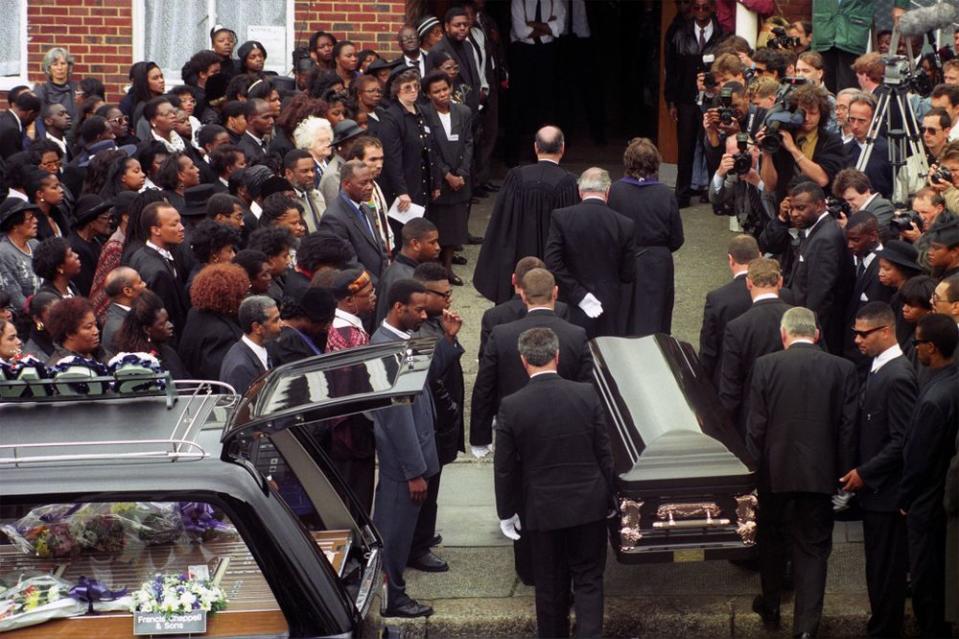
After the stabbing, Lawrence managed to get to his feet and ran 130 yards before collapsing. An ambulance came shortly after, but due to the severe blood loss from the wounds, he had likely already died by the time he arrived, according to medical evidence, the inquest’s report reads.
The initial arrests
Despite the fact that the police had found the primary suspects within a few days of the murder, according to The Guardian, no arrests were made for two weeks. Detective Superintendent Brian Weeden took the lead on the case for the first 14 months, and he said the reason for the delay was because he didn’t realize he could arrest someone based on “reasonable suspicion,” according to The Guardian. He was criticized by the Lawrence family’s lawyer, Michael Mansfield, saying that this was a “basic tenet of criminal law.”
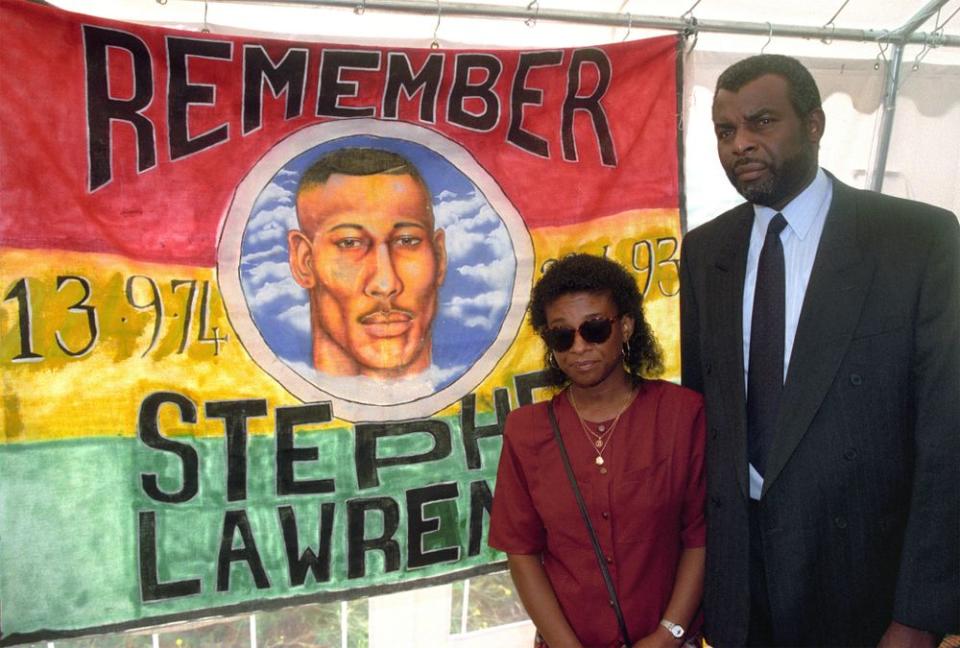
Several calls — both anonymous and not — were placed to the police office, and five primary suspects were found, according to The Guardian: Neil Acourt, Jamie Acourt, Gary Dobson, Luke Knight and David Norris. Neil was arrested first, in May 1993, and Knight followed in June 1993. Both were charged with murder. However, because of delays and mistakes made within the police department, the charges were dropped within weeks for both due to insufficient evidence, the BBC reported at the time.
The inquest’s report summed up the sentiment about the police’s initial handling of the case, which raised questions of racism within London’s Metropolitan Police for years to come: “There is no doubt whatsoever but that the first MPS investigation was palpably flawed and deserves severe criticism,” the report read. “Nobody listening to the evidence could reach any other conclusion.”
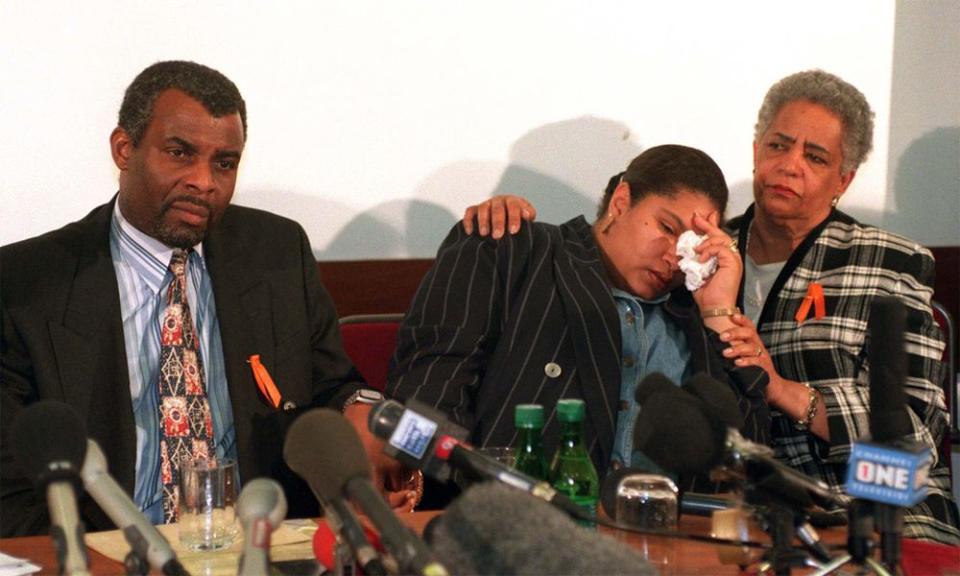
The trial
It wasn’t until Lawrence’s parents, Doreen and Neville, started their own private prosecution that a trial began. Only three of the primary suspects were put on trial: Knight, Dobson and Jamie Acourt. However, there wasn’t much evidence. Much of it was inadmissible, including Brooks’s own testimony. Later, the inquest’s report said the trial “failed because of the absence of any firm and sustainable evidence.” All three received a verdict of “not guilty.”
The inquest
Nothing changed until 1997, when there was an inquest into Lawrence’s death. According to The Independent, the suspects refused to participate, claiming the privilege against self-incrimination. The inquest found that “Stephen Lawrence’s murder was simply and solely and unequivocally motivated by racism,” the report reads. “Nobody has been convicted of this awful crime. That also is an affront both to the Lawrence family and the community at large.”
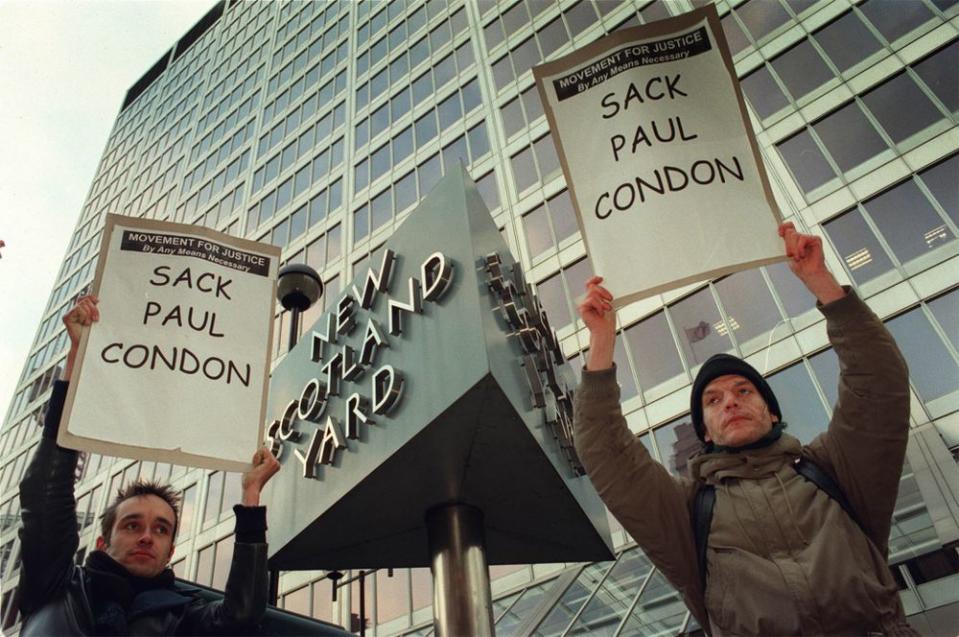
Despite the inquest, bringing the alleged murderers back to trial was difficult because of the “double jeopardy” law, which says that a person could not be tried for a crime that they had already been acquitted of, according to the BBC. By 2005, that law had been changed in England and Wales.
With that law changed, a cold case review was opened in 2006. But it still took another five years before a judge found that there was enough new evidence — including a tiny stain of Lawrence’s blood on Dobson’s jacket — to reopen a trial, according to the BBC. It was Dobson and Norris who were brought to trial this time.
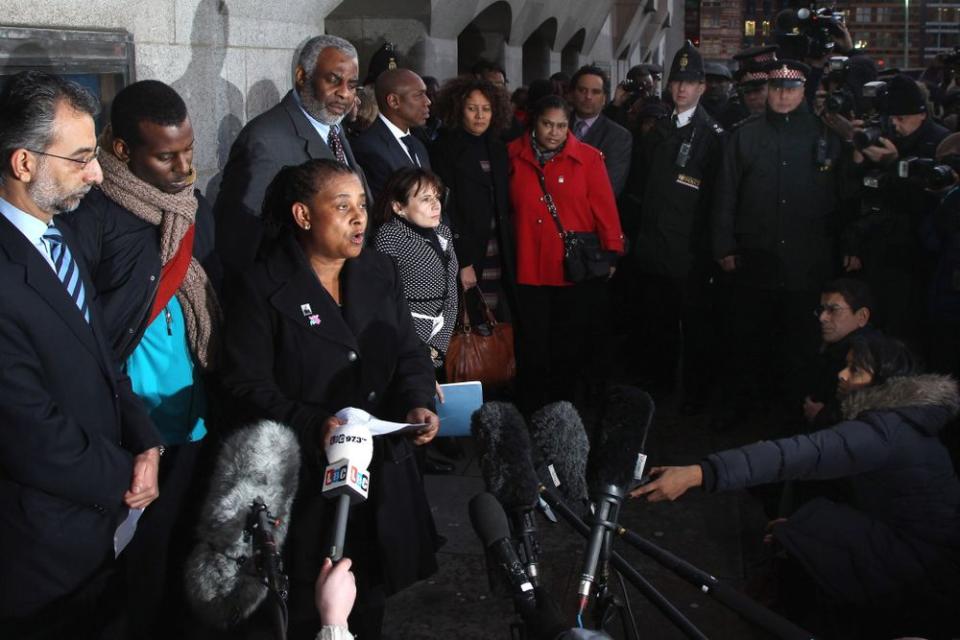
The second trial — and conviction
During the second trial, which started in November 2011 and lasted until January 2012, both Dobson and Norris were found guilty, according to The Guardian. It was the newfound scientific evidence that helped to put them behind bars. Because both men were minors when the crime was committed, their minimum sentence was less than it would have been had they been adults: 15 years and two months for Dobson and 14 years and two months for Norris, the Daily Mail reported in 2012.
Today, Neil is serving a jail sentence on an unrelated drug charge, the BBC reports. Jamie fled the country, also due to alleged drug crimes, and Knight still lives in London, according to the Daily Mail. None of the three have been convicted in connection with Lawrence’s murder.
Though the convictions were eventually handed down, it came nearly two decades after the murder itself — and only for two of the alleged murderers. For the Lawrences — and much of the public — the anger about how the police handled the case remained. As Doreen Lawrence, who was honored by the Queen with an OBE in 2003, said: “Had the police done their job properly, I would have spent the last 18 years grieving for my son rather than fighting to get his killers to court.”
The memorial
Harry and Meghan will attend the memorial on Monday afternoon, where they’ll have a chance to meet with Doreen. Meghan has spoken in the past of her biracial background, and both she and Harry have spoken out against racism — including Harry’s rare public statement in 2016 condemning what he viewed as racist attacks on Meghan in the press.
“His girlfriend, Meghan Markle, has been subject to a wave of abuse and harassment,” the statement read. “Some of this has been very public — the smear on the front page of a national newspaper; the racial undertones of comment pieces; and the outright sexism and racism of social media trolls and web article comments.”
Meghan herself spoke of this abuse in the couple’s engagement interview.
“It’s disheartening,” she said. “You know it’s a shame that is the climate in this world to focus that much on that . . . but I think, you know, at the end of the day I’m really just proud of who I am and where I come from, and we have never put any focus on that.”

